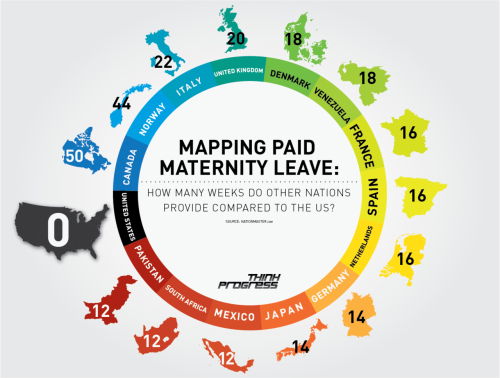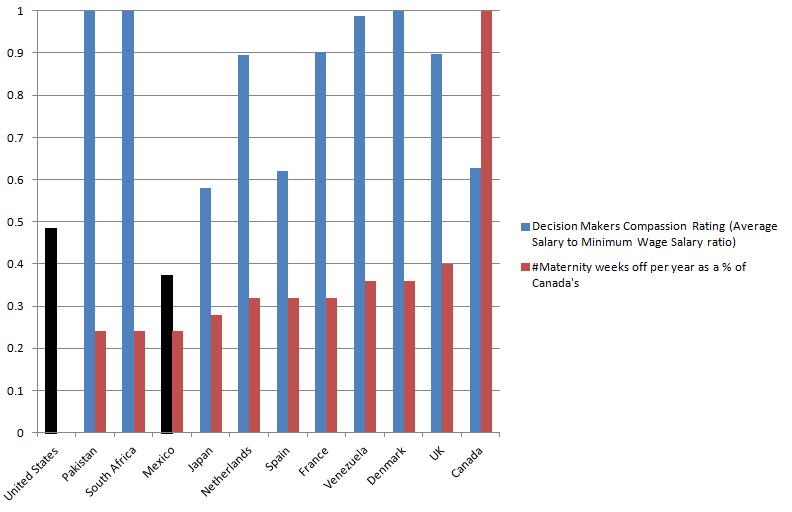
I saw this chart a friend shared on Facebook, and I wondered if there was any link between how much leave a country mandates for its mothers versus how much social compassion exists in that country. To start answering this, I wanted to look at the economic disparities within the countries. I ended up making a chart of the number of weeks of mandatory paid maternity leave per country (as a percent of Canada’s 50 weeks) versus something I coined as the “Decision Makers Compassion Rating”, which is how much the average household makes per year compared to that country’s minimum wage. The idea being that if the average person makes double what a person on minimum wage makes, they are more likely to be a voter and a decision maker, and they are now so far removed from the less fortunate person’s circumstance that social care may lag. This, of course, assumes that wealthier people have more political sway.
The statistics are not perfectly researched (harder to find for South Africa and Pakistan, for example), but it is clear the the US ranks very very low (2nd only to Mexico on this chart) on the Compassion Rating as well as providing 0 weeks mandatory leave for mothers. The 48% Compassion Rating means the average US household takes in 52% more than the minimum wage earner.
Canada is not much better, showing the average Canadian household makes 40% more than a Canadian working minimum wage. So maybe its 50 weeks a year is a wonderful fluke!
Most of the other Compassionate countries on this chart do not have a wide income disparity between the average household and those making minimum wage. Surprisingly the numbers are above 90% in many cases. Exceptions are Mexico, Japan, and Spain.
A few countries got left off because apparently there is no minimum wage in a few countries. Wages there are determined through bargaining agreements. Learned something new…
Not sure if the evidence is conclusive, but it’s a start to a hypothesis…

